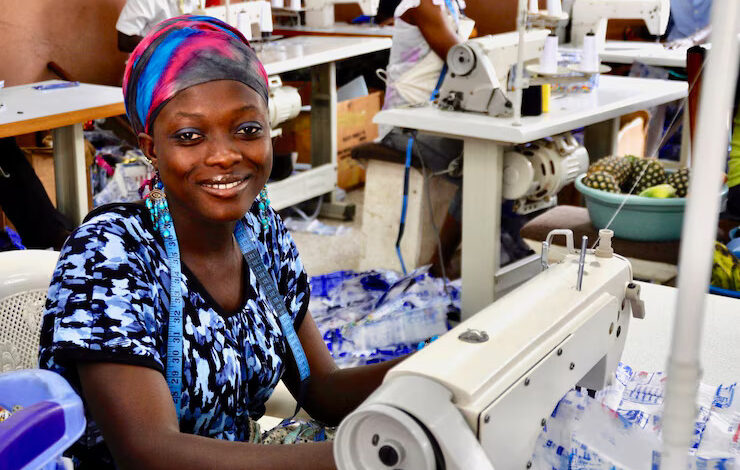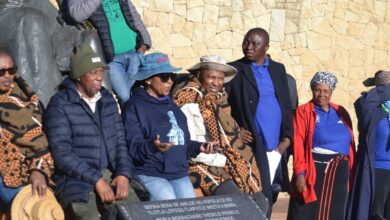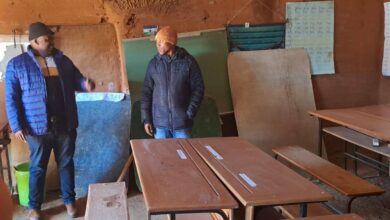Lesotho’s Textile Industry Faces Collapse as U.S. Tariffs Threaten Over 5,000 Jobs

Lesotho’s once-vibrant textile industry is facing an unprecedented crisis, with more than 5,000 jobs now in jeopardy following the announcement of a 50 percent tariff by the United States. The new tariffs, introduced by U.S. President Donald Trump in April 2025, have sent shockwaves across the country’s garment sector, threatening the survival of some of its largest manufacturers.
At the heart of the turmoil are Lesotho Precious Garments (PTY) Ltd and its subsidiary, Maseru E-Textiles (PTY) Ltd—two of the country’s leading textile producers. Both companies are now preparing for a potential shutdown of operations, citing the newly imposed tariffs as unaffordable and unsustainable under current export conditions.
Although the U.S. government has temporarily suspended the tariff hike for a three-month negotiation period, the damage is already being felt. American buyers, who make up a significant portion of Lesotho’s textile market, have halted new orders amid the uncertainty. Many are waiting for a definitive outcome before resuming business, placing immense pressure on local factories.
Efforts by the Lesotho government to open dialogue with the U.S. have so far failed to gain traction. A planned meeting in Pretoria with U.S. Trade Representative Jamieson Greer was reportedly snubbed, and a subsequent virtual meeting remains unconfirmed. With negotiations stalled, the country’s textile workforce is bracing for the worst.
Potloloane Monare, deputy general secretary of the United Textiles Employees Union (UNITE), confirmed that both Precious Garments and Maseru E-Textiles have engaged the union to discuss an initial three-month shutdown. According to Monare, the temporary closure is intended to allow time for the government to renegotiate the punitive trade terms.
“This is a direct attack on our economy,” said Monare. “The textile industry has long been the backbone of Lesotho’s job market. If these shutdowns proceed, thousands of workers—mostly women—stand to lose their livelihoods.”
Monare further stressed the broader economic implications, noting that Precious Garments often subcontracts work to smaller companies such as TZICC Clothing Manufacturers and Lucky Manufacturing. A shutdown of the major players would likely trigger a domino effect across the industry.
“The investors told us they are seriously considering shutting down permanently if no resolution is reached during the temporary closure. Right now, clients are hesitant to place orders due to the tariff uncertainty and high costs,” he added.
The union had sought a meeting with Prime Minister Sam Matekane in the wake of the crisis, but the engagement was delayed. Eventually, the union met with Minister of Trade, Industry and Business Development, Mokhethi Shelile, who assured stakeholders that the government is actively working to resolve the issue.
“Minister Shelile told us the government is engaging with the United States and also looking into developing local and regional markets to reduce our dependence on American buyers,” said Monare.
Lesotho’s plight is tied closely to the African Growth and Opportunity Act (AGOA), a U.S. trade programme that has, since 2000, granted duty-free access to American markets for over 30 African countries. AGOA transformed Lesotho into one of sub-Saharan Africa’s leading garment exporters, with the textile sector employing over 45,000 workers at its peak.
However, the new tariffs—calculated based on trade deficits and import volumes—have disproportionately affected smaller economies like Lesotho, which import little from the U.S. but rely heavily on exports to the American market.
Currently, a 10 percent baseline tariff remains in place while the temporary suspension holds. But with the tariff suspension set to expire at the end of next month, the industry’s fate hangs in the balance.
“If nothing changes, and the 50 percent tariff comes into force, we will see even more factories closing their doors,” warned Monare. “Buyers are afraid to commit to orders that might arrive just as the new tariffs take effect, making them too costly to process.”
As Lesotho’s largest private-sector employer teeters on the edge, the urgency for diplomatic intervention and trade reform has never been greater. The survival of the textile sector—and the livelihoods of thousands—now depends on the government’s ability to secure a swift and favourable agreement with the U.S. administration.
Join 'Lesotho News' WhatsApp Channel
Get breaking Lesotho news — delivered directly to your WhatsApp.
CLICK HERE TO JOIN



